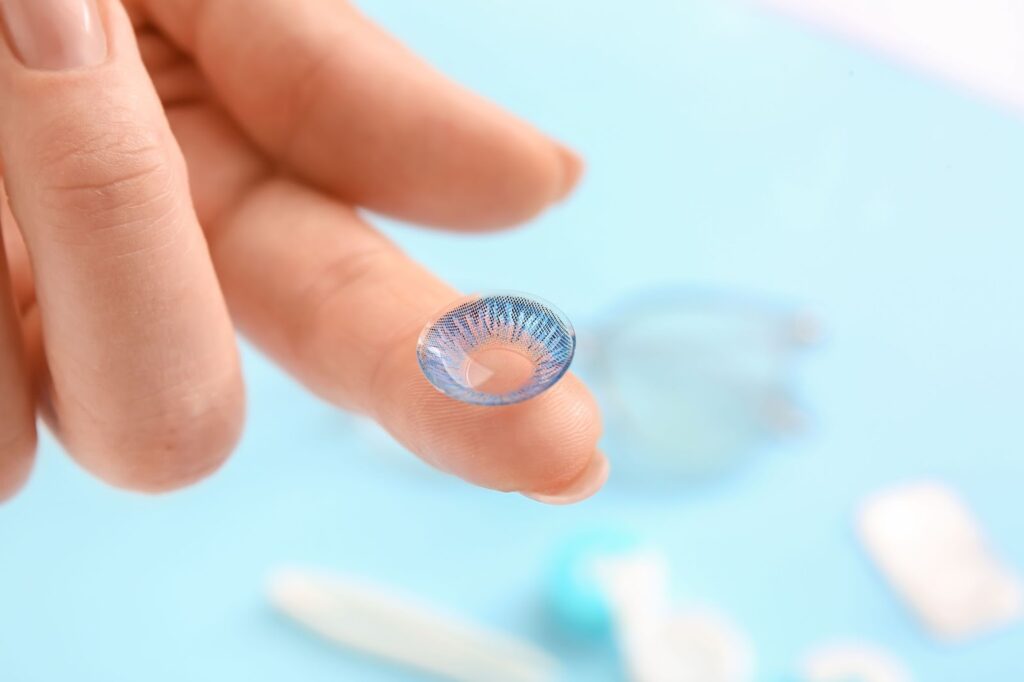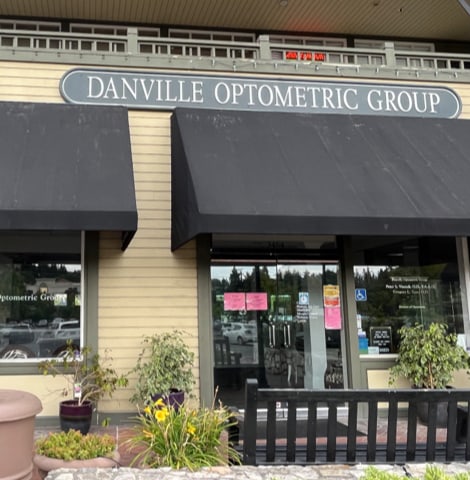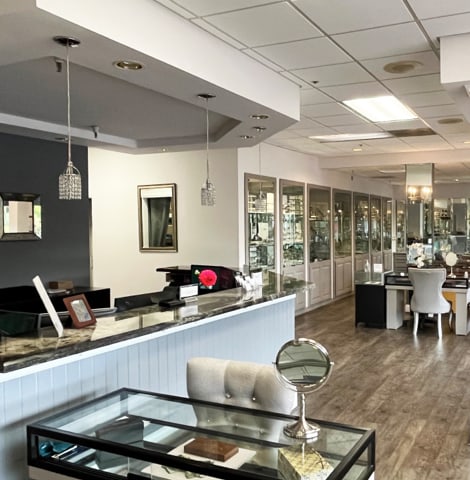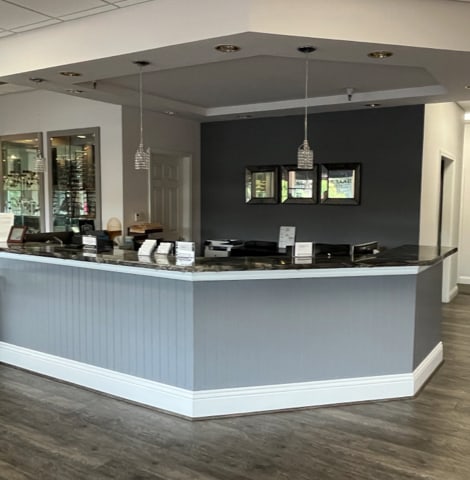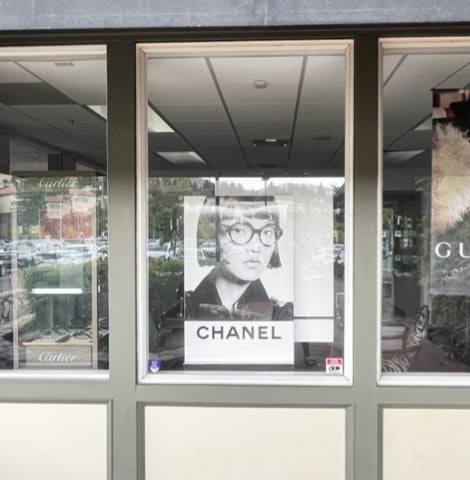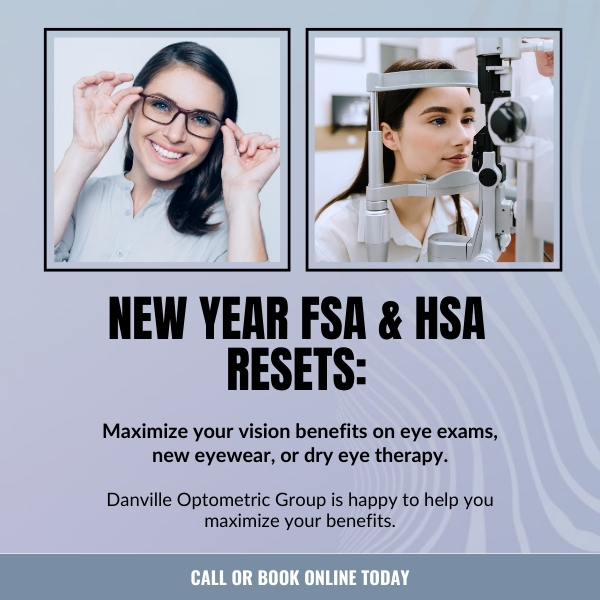We at Danville Optometric Group know that contact lenses are a popular vision correction option, offering both convenience and versatility. Beyond prescription lenses, cosmetic and colored contact lenses have become a trend, with Korean contact lenses standing out for their wide range of designs, affordability, and appeal in the beauty industry. However, with the increasing availability of these lenses through online marketplaces and non-optical retailers, questions about their safety have emerged.
Lack of FDA Approval & Regulatory Oversight
The safety of any contact lens depends on several factors, including material quality, fit, and proper usage. Korean contact lenses, often sold by overseas manufacturers, are not FDA-approved in the United States. Without FDA oversight, these lenses do not undergo the same rigorous testing as lenses available through licensed optometrists.
Additionally, no major distributors in the U.S. carry Korean contact lenses, and no U.S. schools of medicine or optometry approve them for use in their clinics. This lack of approval highlights concerns regarding their safety. Many Korean companies will say “FDA” approved. This is not accurate at all as they are NOT USA FDA approved and there is not FDA is Korea. Avoid these places as they are not protecting the patient. Contacts in the USA are a class level 2 medical device and must be doctor prescribed and fitted.
Outdated Materials & Potential Risks
One concern with contact lenses purchased online, especially those from non-optical retailers, is the lack of proper oversight. Many of these lenses are available without a prescription, which can pose risks. Contact lenses are classified as medical devices, meaning they should be fitted and prescribed by an eye care professional. When lenses are not properly fitted, they can cause discomfort, irritation, and even long-term damage to the eyes. In addition, many do not contain expiration dates.
Many Korean contact lenses are made using older materials that are no longer regularly used in modern eye care. Regulated lenses are made with breathable materials that allow sufficient oxygen to reach the cornea. In contrast, older materials can limit oxygen flow, increasing the risk of dryness, irritation, and infections. Additionally, the coatings and pigments used in cosmetic lenses must be carefully formulated to avoid interfering with oxygen permeability. Without proper quality control, there is a risk of harmful substances coming into direct contact with the eyes.
Risks of an Improper Fit
Hygiene and handling play a significant role in contact lens safety. Regardless of where the lenses are purchased, improper cleaning, storage, or extended wear beyond recommended durations can lead to complications. Eye infections, such as microbial keratitis, can develop when bacteria or other contaminants are introduced to the eye through poorly maintained lenses. Some users of Korean contact lenses report experiencing discomfort, redness, or dryness, which can sometimes be linked to issues with lens quality or improper care routines.
Because Korean contact lenses are not USA, FDA-approved, doctors in the U.S. cannot fit them for patients. This means there is no way to assure a proper fit or safe vision, increasing the risk of complications such as corneal ulcers, bacterial infections, and neovascularization of the cornea. Neovascularization, where new blood vessels grow into the cornea due to lack of oxygen, is irreversible and can lead to vision impairment. The Korean marketing “FDA” approved is misleading as there is no FDA in Korea and they do NOT have US FDA approval.
The Dangers of Buying Contact Lenses Without a Prescription
Many Korean contact lenses are sold through online retailers that do not require a prescription. While this accessibility may seem convenient, it bypasses a critical step in eye health management. A comprehensive eye exam is necessary to determine the correct lens fit, assess eye health, and minimize potential risks. Prescription lenses are designed to fit the curvature of each person’s eyes, reducing the risk of complications. When purchasing lenses without an exam or fitting, there is a higher chance of wearing lenses that do not fit properly, which can lead to corneal abrasions or other serious issues.
Another consideration is the legitimacy of the retailer. There have been instances where non-prescription lenses sold online were found to be counterfeit or contaminated. Without proper regulation, it’s difficult to verify the authenticity of some Korean contact lenses available on third-party websites. Counterfeit lenses may be made from substandard materials or stored in unsanitary conditions, which could contribute to a higher risk of infections and complications. Purchasing lenses from reputable sources that prioritize safety and quality control helps maintain your eye health.
Why Professional Guidance Matters
While some Korean contact lens brands do follow international safety standards, the challenge for consumers is distinguishing between regulated and unregulated products. Brands that comply with the FDA, or other recognized health authorities, undergo rigorous testing to meet safety guidelines. However, not all brands available online carry these certifications. When considering purchasing contact lenses from an international brand, verify whether they meet regulatory standards and have been approved for safe use.
For people who are interested in trying colored or cosmetic lenses, it can be worthwhile to consult with an optometrist. A professional eye care provider can recommend safe options, provide guidance on proper lens care, and can oversee the lens fitting process. Additionally, purchasing lenses through an optometrist or verified retailer helps minimize the risk of receiving counterfeit or unsafe products.
Prioritizing Eye Health
Proper eye care and wearing contact lenses go hand in hand, regardless of the brand or origin. Regular eye exams can help detect any potential issues early and provide an opportunity to discuss safe contact lens options. If discomfort, redness, or vision changes occur while wearing contact lenses, you need to remove them immediately and consult an eye care professional. Ignoring symptoms can lead to more serious complications, including infections or corneal damage.
Korean contact lenses may offer appealing aesthetics and affordability, but their safety depends on multiple factors, including material quality, fit, and regulatory approval. While some brands adhere to international safety standards, others may not meet the same level of oversight as lenses prescribed by an optometrist. Prioritizing eye health by purchasing lenses from reputable sources, following proper hygiene practices, and scheduling regular eye exams can help reduce the risks associated with wearing contact lenses. The worst infection you can obtain is a contact lens infection which can lead to permanent blindness and hospitalization.
If you are considering contact lenses for vision correction or cosmetic purposes, visit us at Danville Optometric Eye Clinic to consult an eye care professional who can provide recommendations based on your personal needs. A safer option is one that prioritizes vision, health, and comfort. By making informed choices, you can enjoy the benefits of contact lenses while minimizing potential risks to your eyes.


